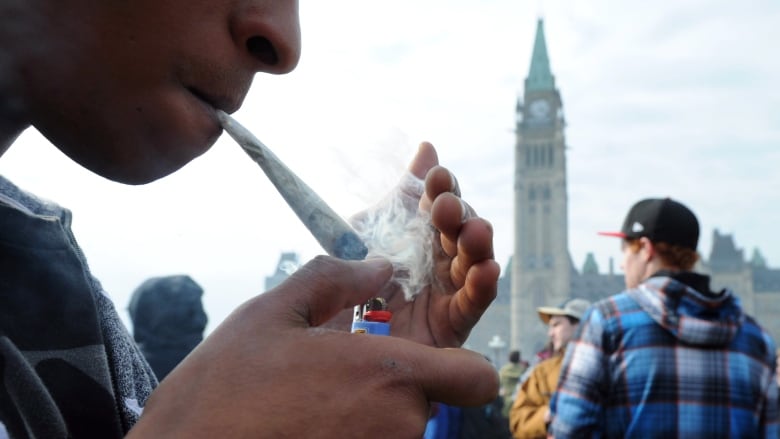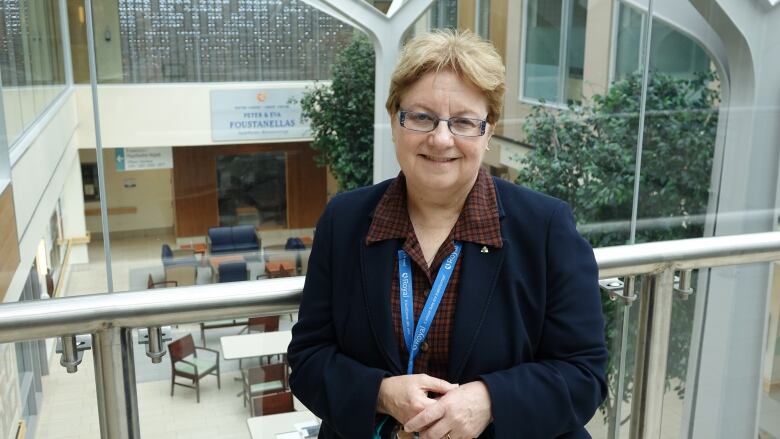Pot legalization needs to focus on health not cash, urge advocates
Colorado is doing more than $1 billion US in legal sales a year

By summer 2018, 4/20-friendly Canadians could behanding over cash to buy legalmarijuana. But some health and safety advocates are already expressing concern about how that revenue stream will be spent.
The Liberal government is expected to announce its long-awaited marijuana legislation this week, with plans to legalize use on or before CanadaDay2018
- Liberals want to move up pot legalization to avoid Canada Day celebrations
- Employers want Ottawa's help to deal with marijuana-smoking workers
- Marijuana legalization could leave provinces responsible for pot rules
- Listen to CBC's The House
The government has said it's approaching legalization through a health lens, but it's also expected to bring in hundreds of millions of dollars.Colorado legalized marijuana in 2014 and, with a population smaller than Quebec and Ontario, that state is doing more than $1 billion USin legal sales a year.
Much of the heavy lifting to implement a countrywide system for the distribution ormarijuana in Canada will have to be done by the provinces, and it appears that Ottawa is counting on the potential profits from marijuana sales to speed things along.
The hope is that at least a few of the provinces will move quickly to finalize their system for retail sales and that will motivate slower jurisdictions.

Dr. Gail Beck, the director of youth outpatient psychiatry at The Royal Ottawa Hospital, has concerns about approaching legalization with dollar signs for eyes.
"As a physician who works a lot with young people who have addiction problems, I'm hoping that legislators keep their mind focused on health and how the legislation and hopefully regulation of marijuana might contribute to the health of Canadians," she told CBC Radio's The House.
"[Revenue] shouldn't be the priority."
Age limit can playimportant role
The marijuana legislation is expected tobroadly follow the recommendation of a federally appointed task force that was chaired by former Liberal justice minister Anne McLellan.
The federal government will be in charge of making sure the country's marijuana supply is safe and secure and Ottawa will license producers. But provincial governments will have the right to decide how the marijuana is sold and have the right to set the price.
Part of regulation needs to include education, argued Beck, who says many of the teenagers she works withthink marijuana is harmless since it's a plant.
"We hear that despite the fact that the impact on young people is significant ... regular users of cannabis can actually see, over a period of time, a decrease in their intelligence quotient, in their IQ," she said.
"When you're combating those kinds of myths of harmlessness, that's a very difficult thing to overcome. The more education that we have as this legislation is introduced, the better."
Ottawa will set a minimum age of 18 to buy marijuana, but the provinces will have the option of setting a higher age limit, should they wish.
The idea that slapping an age limit on cannabis is going to deter teens from getting their hands on it might elicit aneye roll. For generations, young people have found ways to drink booze, but Beck said whatever age the provinces land on could play a crucial role.
"For the most part, when they do get access to alcohol, they're getting it through an older individual and there is significant evidence in Canada that people, at the moment, have better access to cannabis thanthey do to alcohol," she said.
Training money needed
On the safety front, MADD Canada, not surprisingly, hasconcerns about how well-equipped all 13 jurisdictions are to handle high drivers.

For now, most police in the field use a physical co-ordination test as screening test, and if a driver fails that, they then undergo a two-hour drug evaluation test.
"It's long and complicated, involves the collection of over 100 separatepieces of information," Robert Solomon, national director of legal policy for MADD Canada, told The House.
"In order to conduct these tests, you have to be trained, and the cost of training is about $17,000 per officer."
In Colorado, about 10 per cent of drivers involved in fatal accidents in 2010 tested positive for the drug. By 2014, just over a year after recreational sales were legalized, that number had nearly doubled to 19 per cent.
"The federal government needs to introduce a more effective means of enforcing the drug impaired law," Solomon argued.












_(720p).jpg)


 OFFICIAL HD MUSIC VIDEO.jpg)
.jpg)



























































































